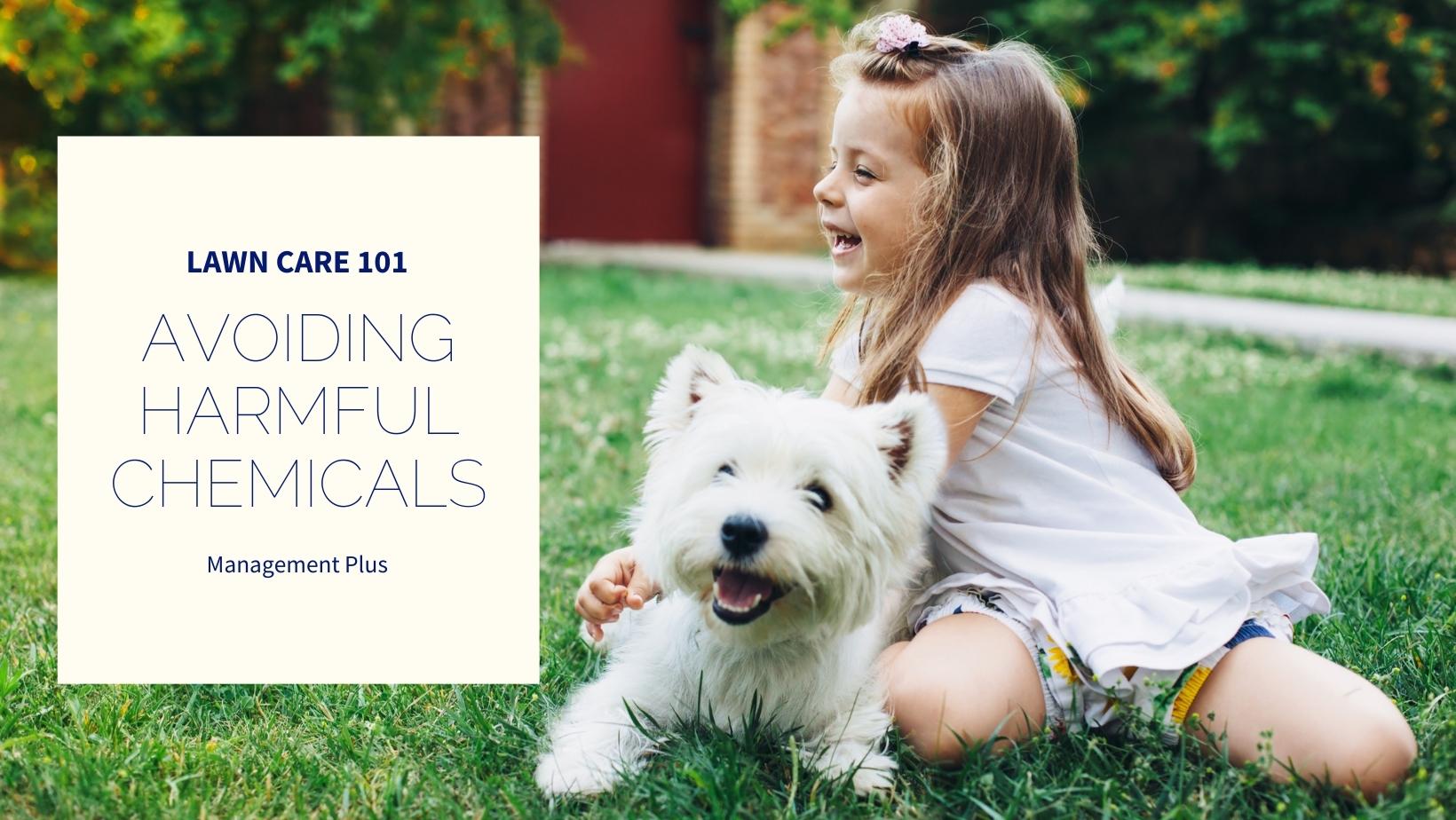How to Take Care of Your Lawn Without Using Harmful Chemicals
How to Take Care of Your Lawn Without Using Harmful Chemicals

Pesticides are harmful.
There’s no way around that. Even though they make lawn care easy, pesticides are poisonous to organic life. After spraying pesticides, it is essential to keep off your lawn for the recommended time frame (the exact amount of time varies depending on the type of pesticide used).
Over 100 million pounds of pesticides are used by homeowners each year. Pesticides linger in the air and soil long after humans and pets are allowed onto your lawn again. Because of this, pesticides leak into our air, water, and homes, and children are exposed to pesticides at 10 times higher levels than pre-application.
Further, the Center for Disease Control tested 9,282 Americans and found 100% of those tested had pesticides present in their blood and urine. The average person tested had 13 of the 23 pesticides tested present.
Despite the ubiquity of pesticides, there are ways to care for your lawn without their use. This article will go over some methods you can use to reduce or eliminate your pesticide use.
Natural Lawn Care Programs
There are many different options when electing for a natural lawn maintenance plan.
One of the most important things to remember is that no lawn will never be completely free of weeds and insects, even if the most effective pesticides are used.
Chiefly, consider which plants are harmful to your yard, and those that you have been conditioned to believe are bad.
First, dandelions and clover are not weeds. They will not kill your grass and can be easily controlled through regular maintenance. The best way to prevent these plants in your yard is through regular mowing. If you keep your grass at approximately 3” your grass will crowd out dandelions and clover and you will notice a reduction in these plants.
Second, there are some legitimate weeds that grow in your yard. One is crabgrass. Crabgrass and similar weeds damage your grass and spread quickly. The good news is you do not need pesticides to eliminate these weeds. Instead, opt for natural, organic remedies like corn gluten. Corn gluten is a natural pre-emergent weed killer and fertilizer. It keeps your grass green and snuffs out any vicious crabgrass.
Another option is compost. Compost is cheap and you can produce it yourself from organic waste and is great for fertilizing your lawn. Spread compost in spring and fall for maximum effect.
Finally, if you have decided to cut pesticide treatment out from your lawn care routine, be prepared for an influx of weeds and non-grass plants. This influx will die down as your healthy grass takes over.
After cutting pesticides, overseed your lawn with grass seed. This will crowd out the emerging weeds and reduce the influx of harmful weeds.
Additionally, encourage natural predators of bugs, such as birds, by placing birdhouses and birdbaths in your yard.
A Healthy Sustainable Yard
It can be tempting to use pesticides as they are the easiest and most efficient way to cut weeds from your lawn. However, they only provide temporary relief. As soon as you stop using them, the weeds will come back in full force.
If you must use pesticides, make sure a professional is applying them for you. Not only will a professional have the proper safety equipment, but they also won’t overuse pesticides and will be able to monitor the composition of your soil to ensure it is healthy.
If you’re interested in the restrictions your Homeowners Association has on lawn care and weeds, reach out to Management Plus. Only Management Plus has the skills and knowledge to keep you within the restrictions of your HOA and keep your yard looking its best.
